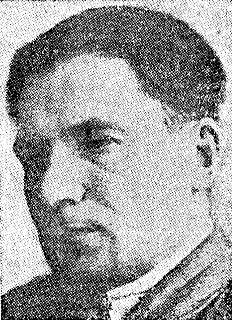Yisroel Shtern
Night senses this in sleep:
the streets cease to lament
their desolation;
a lad sings.
So the night flings open eye and ear:
out of the tight, rent jacket a song erupts;
having torn up the soles of his shoes, he sings.
He has nowhere to sleep:
the gates tightly shut
like his father’s grave;
windows without light,
like him, motherless.
Sidewalk and human – both deathly poor,
and oppressive, heavy vacancy is the city now, the city,
like a newly built orphanage —
No kitchen is assembled,
no smidgeon of a pot,
one looks here, there – for naught.
There’s no compassionate nurse
with an apronful of white goodness,
no straw sacks tucked in corners,
no readied bed –
An orphan.
With nowhere to sleep.
Exiled from palace to palace,
lugging a bellyful of hunger
through the deserted-tedious emptiness
of a great black city,
(he, a dark little lad)
lugs while not knowing the whys and wherefores;
stares: from somewhere a mouse appears.
Runs after it. Where did it go?
He doesn’t yell: God, a bit of rest!
His palate isn’t suited to prayer,
having never been taught by his father,
and he has no mother either,
so from where should he draw tears?
And rendered dumb, staring,
miserable, silenced
(like tin roofs,
like panes of glass,
like lime on houses)
he wanders through every streetcorner
and knows not what pokes his eye:
a lantern?
Perhaps the stars?
And can’t hear
the trumpeting in his left ear.
Burdensome darkness dwells on his shoulders,
a sack of sand hangs in his chest;
he doesn’t know the whys and wherefores
and the sack of sand is immense.
Likewise, he perceives nothing while trudging, then feels:
it’s so pleasant at his feet,
down below is a festive time;
earth soundly kisses his heels.
Mindless, he lowers himself down
and lies there, a person in the middle of the street,
(like dead lips at a dead breast,
his dark head on the black cobblestone)
seemingly out of nowhere, singing a tune
(have you heard about these boys in the synagogue’s anteroom?
At old beggar’s fairs?
Or from gypsies somewhere?)
Doses and hugs the earth,
Seethes – seethes – seethes – and sings from his sleep:
“Good stones, soft stones,
once I was a handsome one,
looking my way now are none.
And all but me are sleeping sound.
If I don’t eat, no one sees,
blackened now are my teeth,
soft, soft, soft stones,
once I was a handsome one,
the handsomest all around,
O, I’m nearly skin and bones,
so why’re you silent, you hard stones?”
The night hears this on the streets,
the tin hears it on the roofs,
the panes hear it in the windows,
the bricks hear it on the houses:
a little orphan sings.
Translated by Miri Koral
(more…)
